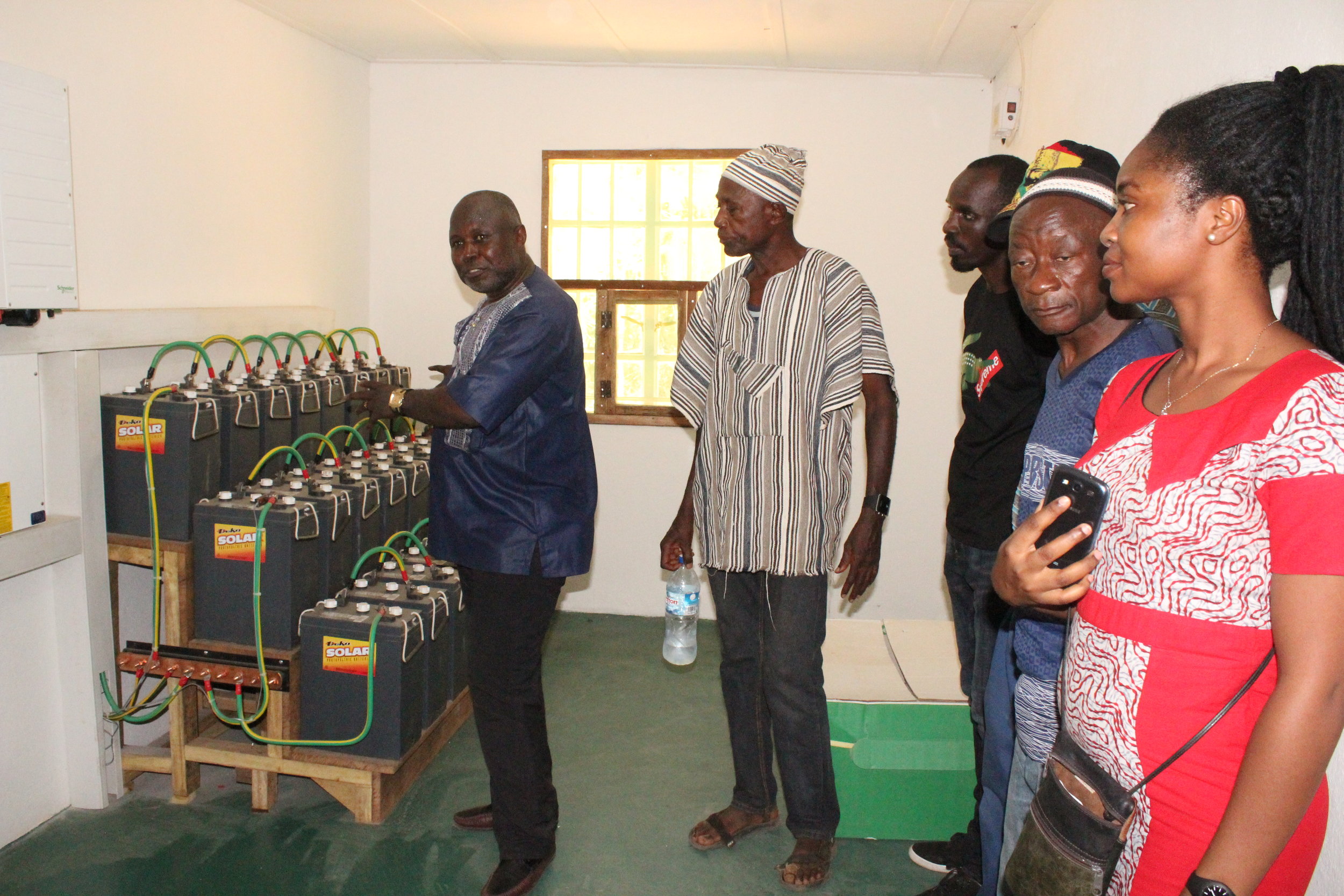By Sahr Ngaujah
eHealth Africa (eHA) in partnership with U.S. Centers for Disease Control and Prevention (CDC), has renovated the Njala University research center at Tiwai Island, in a drive to support one-health surveillance activities in Sierra Leone. The project was funded by CDC, with the objective of improving knowledge and infrastructure capacity at Njala University research center to perform routine Ebola and infectious disease surveillance.
Research began on Tiwai Island in the early 1980s, with studies on primates, other mammals, forest dynamics etc. This research was vital for disease and one-health surveillance activities as Sierra Leone, ebola virus disease outbreak was traced to bats and primates. However, over the years, the facility had fallen into disrepair and was unusable. Renovation of the Tiwai Island research center commenced in November 2018. eHA has now completed renovations on the entire campus including storage room; kitchen, meeting areas, and dormitories. The facilities were equipped with solar power, which now provides uninterrupted power on a daily basis, solar powered water supply in order to ensure adequate water supply during the dry season.
“Those who had visited the Tiwai Research Center before now, would agree with me that there is much difference after the renovation. We are happy that this facility is now ready for use. Communities and stakeholders associated with Tiwai are very grateful. This was made possible through funding from the CDC and renovations by eHealth Africa.”
“CDC has been working with Njala since the Ebola outbreak. CDC has a strong relationship with the Njala team and helping them to have more capacity to do testing to look for viruses, including the Ebola virus that caused the outbreak here. We are looking for other viruses that are in the environment so that we can know more about our environment, learn to live safely with it, and prevent outbreaks from happening. We want to prevent disease outbreaks, and we’re doing that by helping the people of Sierra Leone find those viruses themselves – to study them here so that they don’t rely on outside help. We have seen great success with Njala University and their team doing this work here. CDC is eager to continue to support that effort because we’re so impressed by what’s been done already.”
These renovated structures go to benefit not only Njala University students and faculty and Sierra Leone’s Ministry of Health and Sanitation (MoHS), but also international researchers.




“We will be inviting international auditors who will be resident here to do research; and through that, job opportunities would be opened to the community.’”


